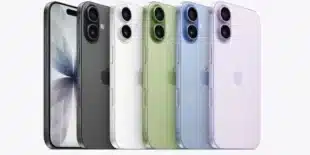Dr. Tyler Wenzel from the University of Saskatchewan (USask) has developed an innovative technique to create miniature brains using human blood stem cells, which could revolutionize the diagnosis and treatment of Alzheimer’s disease.
“We never imagined our bold idea would actually work. These mini-brains could be used as a diagnostic tool, created from blood,” Wenzel said.
The concept of these unique mini-brains was devised by Wenzel, a postdoctoral fellow in the Department of Psychiatry at the College of Medicine, under the guidance of Dr. Darrell Mousseau. The research demonstrates that human stem cells can be manipulated to develop into nearly any type of cell found in the human body.
Wenzel used stem cells derived from human blood to craft a tiny artificial organ, about three millimeters in size, resembling a small piece of chewed gum. These stem cells were transformed to function similarly to brain cells.
What makes these “mini-brains” created from human blood distinctive?
While the use of small synthetic organoids for research isn’t new, the mini-brains developed in Wenzel’s lab are unique. According to Wenzel’s recent publication in Frontiers of Cellular Neuroscience, these mini-brains contain four different types of brain cells, unlike other brain organoids, which typically consist of only neurons.
The tests show that Wenzel’s mini-brains more accurately reflect the fully developed adult human brain, providing a closer examination of neurological conditions like Alzheimer’s disease.
“If stem cells can become any cell type in the human body, we wondered, ‘Could we create something that resembles an entire organ?’” Wenzel explained. “During development, I had the wild idea that if we grew a mini-brain from a patient with Alzheimer’s, in theory, that tiny brain would exhibit Alzheimer’s.”
Wenzel is still processing the remarkable success of these early mini-brains. “I’m still in disbelief, but it’s incredibly motivating that something like this could happen,” Wenzel said. “It feels like something that could truly impact society, with the potential to significantly change the landscape of medicine,” he added.


